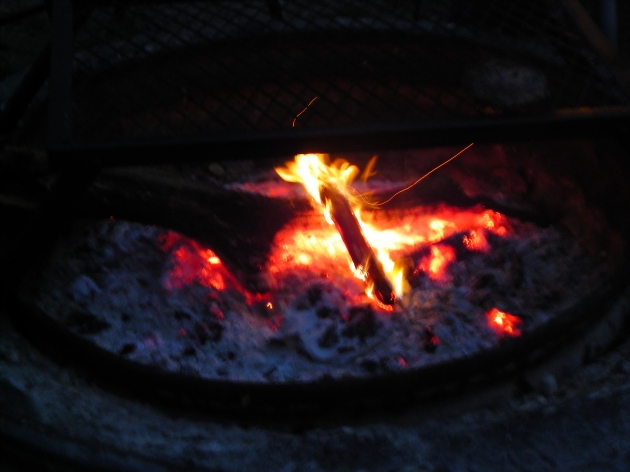Being caught in your anger, I smolder too.
That emotions are contagious is true.
It’s our responsibility to share the best of ourselves
but sometimes we fail.
And I get caught up in it, then am reminded
that a relationship can also be
a workout in patience and the willingness to accept
That I don’t always understand.
And that many things
change so slowly we cannot perceive the growth.
Last night, I set it on fire.
My anger braided in the knots of our mutual frustrations.
I raked leaves in the dark, giving rise to flames
that waited in the coals for life.
Raking in the dark is wonderful. You don’t worry
about how much yard is left to clean. Being blind to the whole task,
you only see the small areas within reach.
Back at the fire pit, the white gray ash
on the cherry trunk appears like aboriginal faces in the dark.
So I left you for a while to go to this place beyond the walls of our home,
the limits of our fenced yard. This is the only way I leave,
In the mind.
On return, the anger became purified in the flames,
now just residual ash safe enough
to touch, safe enough to carry
on my return home to you.




